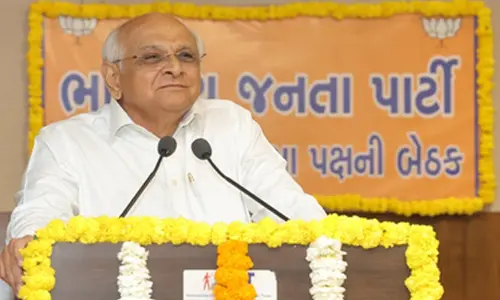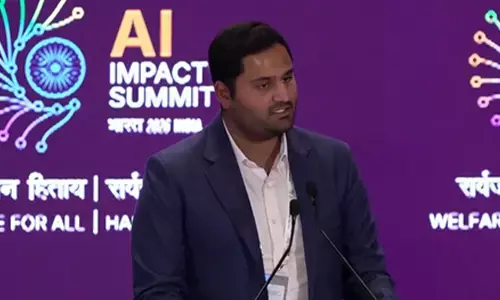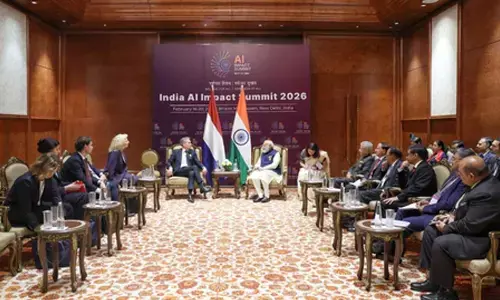First babies born after being conceived by PlayStation-controlled robot
Share :

First babies born after being conceived by PlayStation-controlled robot
Overture Life, a Spanish startup, which developed a sperm-injecting robot that can be controlled using a PlayStation controller, has successfully fertilised human eggs, giving birth to two healthy babies.
San Francisco: Overture Life, a Spanish startup, which developed a sperm-injecting robot that can be controlled using a PlayStation controller, has successfully fertilised human eggs, giving birth to two healthy babies.
According to a report by MIT Technology Review, one of the engineers involved in developing the world's first insemination robot had limited experience in the field of fertility medicine. However, they were able to utilise a Sony PlayStation 5 controller to help with the development process.
A student engineer from a startup successfully steered a small, mechanised needle during in-vitro fertilisation (IVF) procedures, using a specialized controller.
Through this technique, individual sperm cells were carefully deposited into human eggs over a dozen times.
According to the researchers, the procedures resulted in healthy embryos, which led to the birth of two baby girls. The researchers claim that these babies are the first known individuals to be born after fertilisation with the aid of automated technology, the report said.
"I was calm. In that exact moment, I thought, 'It's just one more experiment'," Eduard Alba, the student mechanical engineer who commanded the sperm-injecting device, was quoted as saying.
Moreover, the startup said that its device is an initial step towards automating in vitro fertilisation, or IVF, and potentially making the procedure far less expensive and far more common than it is today.
At present, in vitro fertilization (IVF) laboratories are typically operated by highly skilled embryologists, who can earn over $125,000 annually, and are responsible for carefully manipulating sperm and eggs with the aid of ultra-thin hollow needles and powerful microscopes.
Further, the report mentioned that Overture has received the most funding thus far: approximately $37 million from investors such as Khosla Ventures and Susan Wojcicki, the former CEO of YouTube.
According to the experts, this is just the first step towards fully automating the process.
"The concept is extraordinary, but this is a baby step," Gianpiero Palermo, who developed the now-commonplace intracytoplasmic sperm injection (ICSI) procedure in the 1990s, was quoted as saying.
He added that Overture's engineers still had to manually load sperm cells onto the injector needles, which means "this is not yet robotic ICSI".







